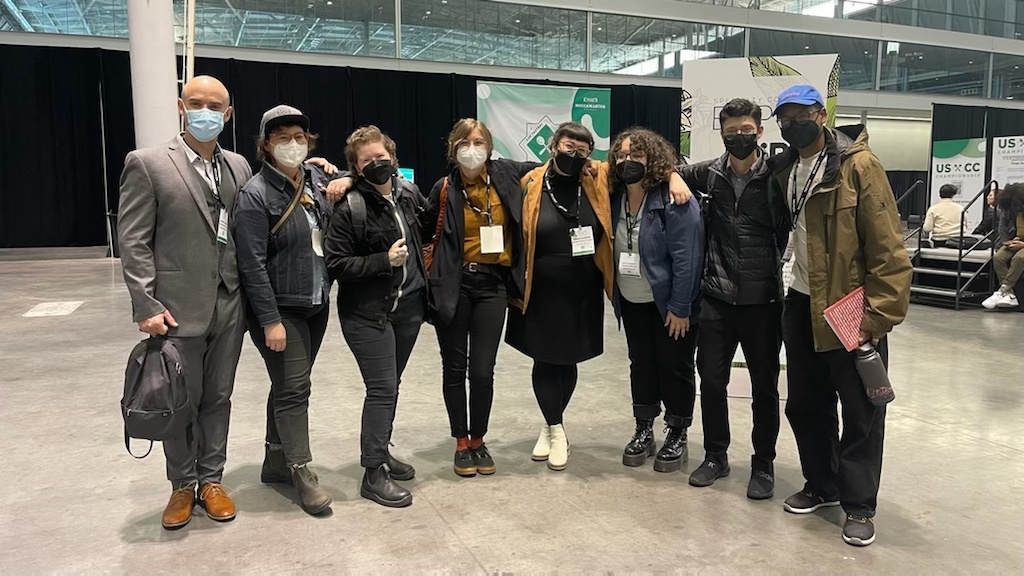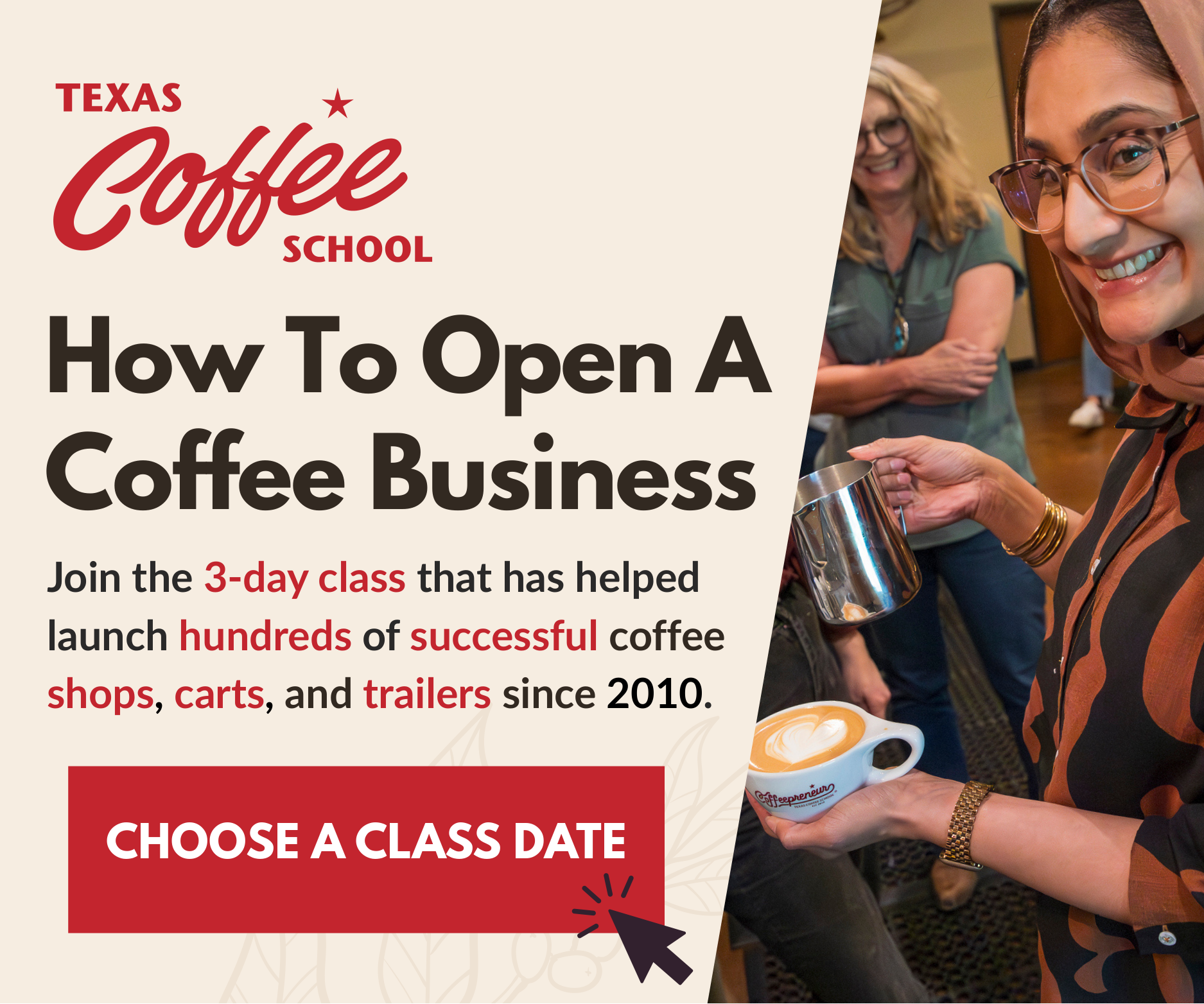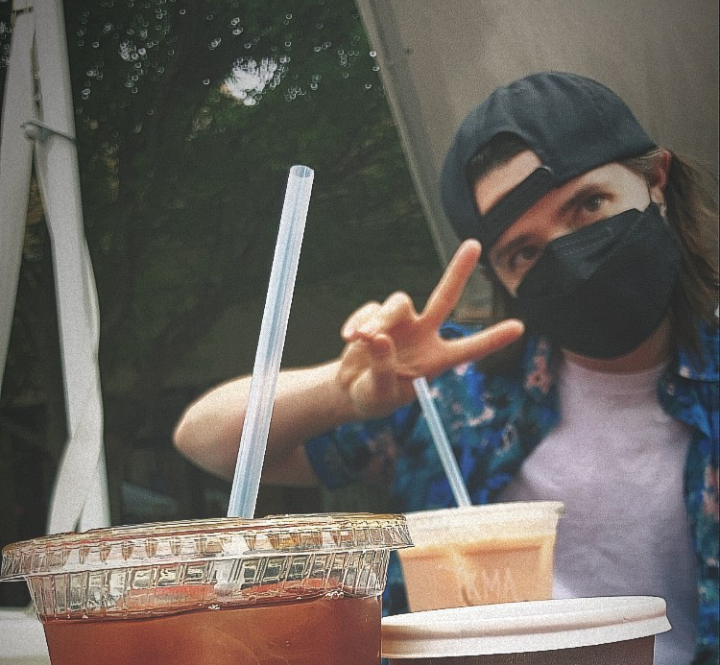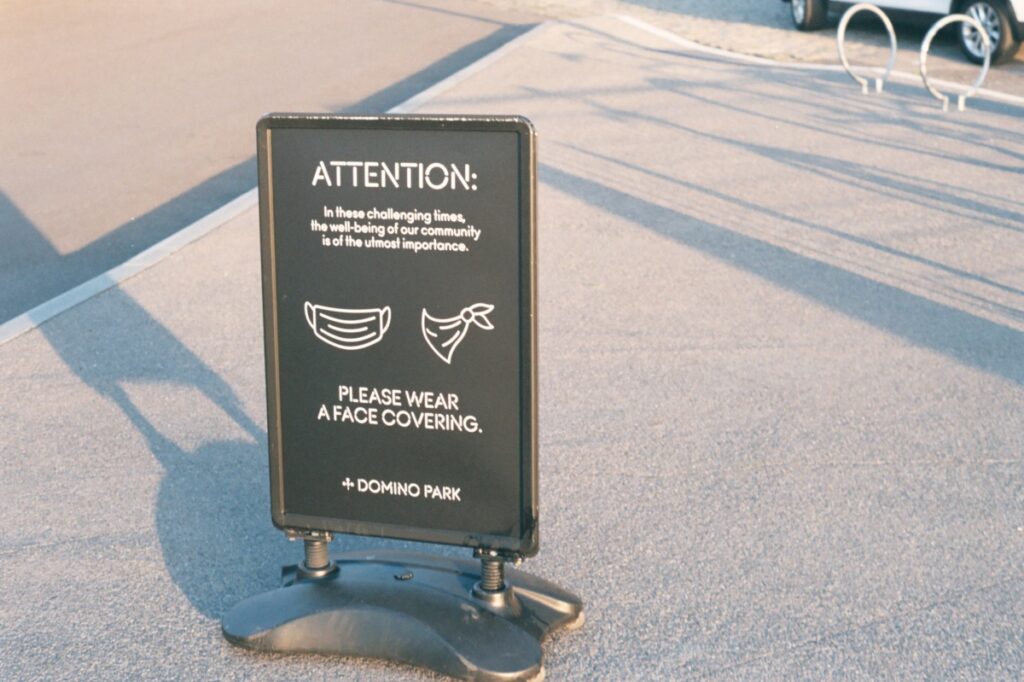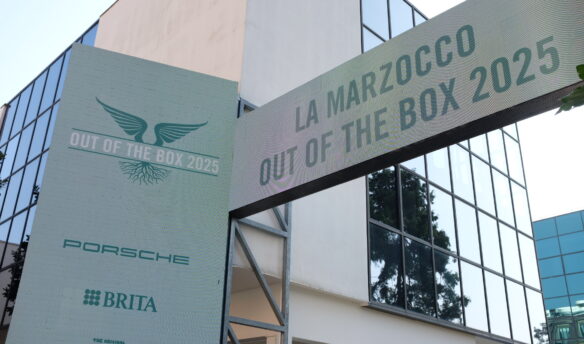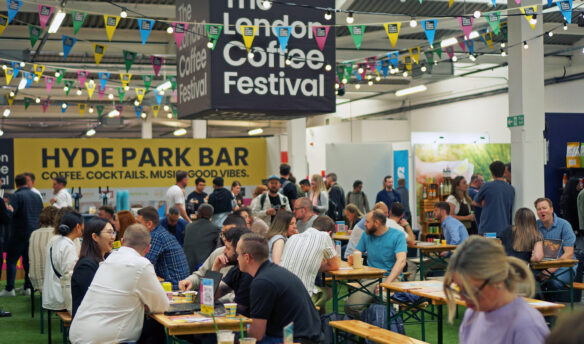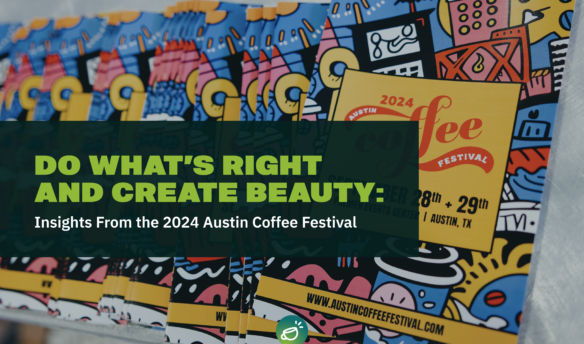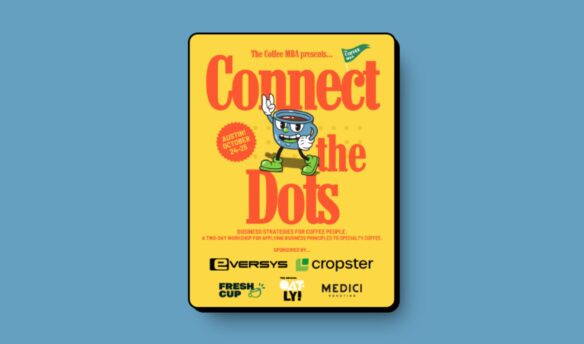In early April, the Specialty Coffee Association (SCA) hosted its annual Specialty Coffee Expo, North America’s largest coffee trade show. At the time, COVID case counts were lower than during the winter Omicron spike. But infections were still prevalent, and the SCA issued a series of guidelines and safety protocols for the event, requiring that all attendees pre-register, wear masks, and provide proof of a negative COVID-19 test within 48 hours of admission to the show floor.
However, days after the event, several attendees reported positive COVID-19 tests, and the SCA issued an email alerting attendees they may have been exposed.
Even with prevention protocols in place, COVID-19 outbreaks in the aftermath of large events (including several notable White House gatherings) are common. In the wake of the SCA outbreak, we as an industry have an opportunity to ask an important question: how do we make in-person events, especially large ones, not only safer for attendees who choose to attend but also for the larger population of vulnerable parties who don’t get to choose.
In the case of Expo, many with preexisting conditions didn’t feel comfortable attending, while some were required to attend for work. Outside of coffee, those same high-risk people are encountering higher levels of community spread, increasing their likelihood of contracting COVID on public transit, at work, or in medical facilities as they seek necessary emergency or routine care.
Even the healthiest people need to worry about long COVID, persistent symptoms that can be as varied as they are debilitating and result from even mild or asymptomatic infections. We’re still learning about who ends up with long COVID and why, but it’s estimated to affect ten to thirty percent of those initially infected with COVID, and there’s no comprehensive treatment path.
As a novel virus, we still don’t know the long-term ramifications of mild or asymptomatic infections. Long-term symptoms can be different than they initially appear, as in the case of asymptomatic polio and post-polio syndrome. Even at the acute level, despite many being excited to approach COVID as a cold or flu, it still isn’t, causing an estimated ten or more times higher mortality than current influenza strains.
This piece unpacks why the recent Specialty Coffee Expo led to cases despite planned mitigations. My next piece, to be released tomorrow, will focus on strengthening mitigations using what disease scientists call the Swiss Cheese method, where each mitigation tactic adds a layer of prevention. Combined, these tactics reduce the risk of COVID spread substantially.
While most events have some mitigations in place, we’ll need to be more strategic and consistent to bring about a future where large events are safer for the COVID-vulnerable and high-risk non-attendees. And honestly, how can we call ourselves a community if we don’t take steps to reduce the spread of COVID and keep others safe?
Why Did COVID-19 Spread at Expo?
Many attendees expressed concern that SCA didn’t enforce its stated protocols (more on this below) at the event. But SCA can’t be asked to shoulder the sole blame for the fact that people got COVID at what essentially amounts to a global coffee tasting convention. (Note: we sent the SCA multiple requests for comment and received no response.)
We’ve known since 2020 what conditions allow for superspreader events. Expo is an event where thousands of people fly in from all over the world and mingle at the event itself, and auxiliary parties hosted off-site (which often have different rules). Given the levels of global community spread of COVID-19, Expo was guaranteed to lead to the spread of COVID.
As DC-based coffee educator Damian Salisbury (who did not feel comfortable attending due to both chronic illness and social responsibility) says, “there was no way an indoor event with thousands of people attending via air travel could possibly be guaranteed to be safe.”
No matter how vigilantly event organizers upheld the protocols they put in place, COVID is an extremely contagious airborne respiratory virus, and the mitigations in place weren’t going to be enough to prevent international spread.
SCA asked attendees to abide by the following rules at Expo:
- Negative lab test for entry (and resources provided to access one)
- Masks are required at all times except when eating or drinking
- Advanced registration only
Unfortunately, there’s no way these precautions could prevent all spread of COVID—both because they were not enforced and because, even when properly implemented, these mitigations leave large holes for spread:
Lab Tests
Meghan-Annette Reida, Cafe Sales Manager at Myracle Kitchen, attended for work and, despite having had three vaccinations, was infected with their third case of COVID—something they knew was a definite possibility. Before attending, they were glad that lab tests would be required since “we all know that vaccinated people can still carry the virus,” and they appreciated that rules were laid out clearly in advance and did not change days before the event. Reida notes this was an issue at a different large coffee convention they recently attended.
However, they encountered a lot of people confused by the testing requirements. “I also was never wild about the fact that people could get tested at the convention center, potentially exposing everyone while they waited for results,” Reida says.
Their stress increased on Friday morning (the second day of the event) when they learned that many of the check-in staff weren’t reviewing test results. “It hit me like a ton of bricks—there would be people there with active COVID.” They specifically noted that they observed all SCA staffers were checking tests, but many contractors hired for the event were not.
In addition to the requirement not being enforced, tests capture a moment in time when the testee did not have COVID. If a person has since traveled or encountered someone contagious, they could have acquired the virus by the time they show their negative results from an earlier test. Many who become symptomatic have mild cases that are easy to shrug off as allergies, so it’s easy to test negative one day and transmit the virus the next.
Masks
Masks have been shown to do a lot to prevent the spread of coronavirus, and while not fool-proof, they’re an essential front-line intervention. However, according to those I interviewed, masking was not enforced at Expo. Pictures posted by SCA on Instagram show many attendees without masks.
A, an account manager for a coffee equipment company who didn’t feel comfortable sharing her full identity, attended despite being immunocompromised. She knew she was taking a risk but felt that there would be enough layers to reduce potential exposure between her ability to mask, the testing requirement, and the masking requirement.
When masking went unenforced, the premise she had based her decision to attend Expo on was completely undermined. “The masking requirement had been clearly stated in every single email from SCA that I received between registration and the show itself,” she says. “The vast majority of people I saw made no effort to put masks on even when they weren’t drinking coffee. Many people didn’t even bring masks with them to the show floor, which was surprising. But I guess that’s to be expected when attendees could clearly see that there were no in-person reminders of the mask requirement.” She had gone in expecting mediocre compliance and many defying the enforcement, but not complete non-compliance and no enforcement.
Enforcing masking, especially within a context where masks come off to eat and drink, is hard, but messaging does matter, as all of the sources I talked to stated. Going in, Reida had no belief that people would wear masks consistently, “and I don’t know how it could have been policed, but they could have at least attempted to enforce it at registration.”
On top of a lack of enforcement, mask-based prevention has been known since the beginning to be a complex spectrum. Some charts out there show how long it takes to transmit coronavirus based on data from the original Wuhan strain. Even then, an unmasked person could eventually transmit to a person wearing a well-fitted N95 mask.
Alpha, then Delta, then Omicron, then Omicron’s many subvariants have each multiplied COVID’s transmissibility. Now, we’re at a point where COVID is one of the most contagious diseases known to humans, and our old data on Wuhan strain and transmissibility is no longer even close to current. But even in 2020, masking and distancing indoors was known to help, but not entirely render safe, indoor events.
COVID aerosols can build up in a space like cigarette smoke, meaning that even if you take your mask off alone, you could inhale what someone else recently exhaled. All of this means that even if mask rules were followed with zero exceptions, a substantial amount of a very transmissible virus would still accumulate in the air over time (think of the cigarette smoke analogy). Large convention center settings have HVAC units, but the SCA didn’t provide or have control over key factors like the number of air exchanges (how frequently air is circulated out and fresh air circulated in) at the convention center.
Another principle called source control explains that masks do more to protect others than the wearer. Those at higher risk can’t necessarily protect themselves simply by keeping their masks on, even if they refuse to remove them to eat or drink. As Cloud City Coffee owner and former SCA USA volunteer Jill Killen, who did not feel comfortable attending, says, “one-way masking isn’t enough, so it would have been anxiety-inducing. Some of the messaging I saw coming out of Boston from masked folks reflected that anxiety.”
Red Tape
Red tape is another factor in large-scale events that involve convention centers. The rules put forth by the Centers for Disease Control and Prevention (CDC), Occupational Safety and Health Administration (OSHA), and federal, state, and municipal governments largely govern what standards the convention centers use regarding air safety. Convention centers often bring a slate of their own rules that might not be transparent to attendees from the outside and might limit SCA’s actions.
Can We Reduce the Spread of COVID at Events?
There are a lot of steps we can take to make events, both large and small, safer for all attendees. In my next piece, I’ll outline an extensive list of mitigations, some immediately accessible and some possible in the future.
Philadelphia coffee professional, US Brewers Cup Head Judge, and long COVID survivor Kendra Sledzinski masked diligently at Expo and got COVID for the third time. “I’ve acknowledged that COVID will be a part of our lives for the long haul,” she says. “I’m reminded with lingering symptoms, both from long COVID and my most recent COVID infection, every day. In the future, it’s imperative that those in charge find ways to enforce safety policies. I understand that in a crowd of thousands, it’s hard to enforce such policy, but there’s an element of shared responsibility at play here, too.”
RJ Joseph is a coffee writer focusing primarily on equity, workers’ rights, and structural alternatives to the status quo. She’s been a barista, a roaster, a green coffee grader and lab tech, and finally made coffee writing her full-time gig at Red Fox Coffee Merchants. In her decade in coffee, she’s also run a queer coffee events organization, written a blog on equity in coffee, and run a coffee satire website called The Knockbox. If you see her around, say hi.




